Sara Robinson at Orcinus posted Part III: Escape Ladders of her brilliant series on authoritarians based on John Dean's book, Conservatives Without Conscience. You can read Part I: Defining the Authoritarian Personality here and Part II: Listening to the Leavers here or excerpts with my comments on RealSpiel here and here, plus an Olberman interview with John Dean about authoritarians here.
In Part III, Sara begins her essay with an explanation that:
Assorted polls ...have in recent years put the number of hard-core religious and political conservatives at somewhere between a quarter and a third of American voters. Wherever the number actually falls within that range, there are certainly enough of them in the voting base to dominate our political landscape. (To put it in a historical perspective: in 1932, when Hitler was elected president of the Reichstag, the Nazi party was consistently garnering 31 to 38 percent of the German vote. That's all it takes for an organized, passionate group to take control of a country.)John Dean says that 23% of the population are pure right-wing authoritarian followers but Sara asks for a pointer to data whether "hard-core religious and political conservatives" have decreased or increased over the past 30 years. According to The Public Eye Magazine, Summer 2003:
In one recent study, about half of the people in the United States in the year 2000 reported they were adherents of an organized religious belief system.[1] Depending on how the question is asked, some 25-45 percent of the population report that they see themselves as either Born-Again Christians, or, in the broadest sense of the word, Christian "Evangelicals." ...
[...]
In the broadest sense, according to Gallup polls, the number of persons in the United States who described themselves as either Evangelical or Born-Again between 1976 and 2001 fluctuated between 33 percent and 47 percent with a reasonable estimate being 35 percent of the population or just over 102 million people in 2003.[6] There seems to be a small long-term increase in the number of people reporting themselves in this category with 34 percent in election year 1976 and 45 percent in election year 2000. Using a different methodology and set of definitions, Barna Research has found that 41 percent of the population identifies as Born-Again using a broad definition, but only 8 percent accept all the tenets in a list of strict conservative doctrinal beliefs.[7]
Significantly, Christians, including Evangelicals, do not vote as a bloc, even within specific denominations. In the year 2000, when 45 percent of the population told the Gallup poll they were Evangelical or Born-Again, 84 percent of White Evangelical Protestants who voted cast ballots for Bush and 16 percent for Gore. One study found that 40 percent of the total vote for Bush in 2000 came from Christian Evangelicals, making it the largest single voting bloc in the Republican Party. However, Black Protestant voters, a majority of whom are Evangelical, voted 96 percent for Gore and only 4 percent for Bush. Contrast this with Jewish voters who voted 77 percent for Gore and 23 percent for Bush; and Roman Catholic voters who voted 57 percent for Bush and 43 percent for Gore.[8]
When all Evangelicals were polled regarding their Party and voting preferences, some of the results were surprising. Not surprising is that almost half of all Evangelicals are Republicans, while only one-quarter are Democrats. Yet, the single biggest bloc (among all Evangelicals) in 2000 was non-voters at 52 percent, followed by Bush voters at 37 percent and Gore voters at 11 percent. Even among Republican partisans (comprising 47 percent of all Evangelicals), while 77 percent voted for Bush, 33 percent chose not to vote; making non-voters the second biggest voting bloc in the Christian Right. Independent Evangelicals gave 19 percent and 18 percent of their votes to Bush and Gore respectively, but the biggest bloc for Evangelical Independents was also non-voters at 41 percent.[9] Many Evangelicals are "swing voters" oscillating between the Republican and Democratic Party; and many more simply feel neither Party represents their interests.
While on average older Evangelicals tend to lag slightly behind the average U.S. resident in education and income, there is a "continuing trend toward the GOP, as younger, better-educated, and wealthier Evangelicals replace an older, less upscale Democratic political generation."[10] Evangelicals who are politically or socially active, especially conservatives, seem to be increasingly upwardly mobile, suburban, highly-educated, and with above-average incomes, contrary to many popular stereotypes.[11] One group of scholars found that between 1978 and 1988, "Christian Right activism occurred predominantly in rapidly growing—and relatively prosperous—suburban areas of the South, Southwest, and Midwest."[12] Conservative Evangelicals also do a better job at rallying their own forces to vote. In 2000, 79 percent of Evangelicals who voted for Bush had been contacted at least once by a politicized religious group or individual, as compared to 36 percent of Gore voters.[13]
Many in the Christian Right tend to get their information—and thus their political worldview—not from major corporate media, but from alternative media produced within the large Christian Right subculture.[14] The most exclusionary and antidemocratic members of the Christian Right are often members of Christian political action groups such as Concerned Women for America.[15] These are groups that regularly spread alarmist and frequently inaccurate claims about liberals, radicals, gays, and feminists. The more frequently a self-identified Evangelical/Born-Again person attends church functions, and the more conservative the theological doctrine and social beliefs they follow, the more likely they are to vote Republican.[16] This especially stands out on the issue of abortion, with 73 percent of Evangelical Bush voters responding that abortion should be illegal in all cases, compared to only 23 percent of Evangelical Gore voters.[17]
Protestant churches with socially conservative agendas, that also require a high level of participatory commitment, are the fastest growing sector of religion in the United States. For example, the Church of Jesus Christ of Latter-Day Saints (Mormons) increased its membership between 1990 and 2000 by 19.3 percent to a total of over 4.2 million. Following in order of growth are the Churches of Christ and the Christian Churches, both with 18.6 percent growth rates; the Pentecostal Assemblies of God with 18.5 percent; and the Roman Catholic Church with 16.2 percent. At the same time, traditionally more liberal denominations—such as the Presbyterian Church USA and the United Church of Christ—are losing membership. The Catholic Church is still the nation’s largest single religious belief system, with over 62 million adherents in the year 2000 (some 22 percent of the population), but if all Protestant religious groups are combined, they number 66 million adherents (some 23 percent of the population).[18]
One study has suggested that as the more socially conservative and doctrinaire Christian Right Evangelicals have expanded their control of the Republican Party, members of more liberal major Protestant denominations have backed out of being active in the Party, and many have stopped voting Republican, some going so far as to declare themselves as Independents.[19] They are reluctant, however, to vote Democratic without a compelling reason.
The arguments from the Democratic Leadership Council that Democrats need to move to the center to attract these and other voters and thus win elections, however, are not based on persuasive factual evidence. Teixeira and Rogers have found that when Democratic candidates offer clear leadership and stress progressive and liberal issues such as economic fairness, health care, education, and the environment, that many voters will set aside their conservative social issue concerns and reject Republican candidates. According to Teixeira and Rogers, many of these voters are part of the White working class.[20] This is the same demographic group among Christian Evangelicals that tend to vote Democratic or not vote.[21]
While we unequivocally defend reproductive rights, women’s rights, and gay rights, we have to leave some space in the public square for those who disagree with us. Veteran organizer Suzanne Pharr, director of the Highlander Center in Tennessee, urges progressives to find ways to challenge the ideas of the Christian Right while agreeing to disagree with individual followers in a respectful manner that would allow us to trade a cup of sugar with them if we shared a backyard fence as neighbors.[22] When we ridicule those who have spiritual values and conservative politics, we force them to defend themselves by challenging us. Why antagonize them when our goal is resisting oppression?
We need to distinguish between people who believe abortion is a sin and those who attack clinics—a tiny fraction of Christians who oppose abortion. We can challenge both groups without unfairly lumping them together. We need to abandon focus group phrases such as "religious political extremist" that demonize observant Christians by falsely implying they are linked to neonazi race hate groups. Every direct mail letter that raises funds by demonizing Christian evangelicals in general as "The Radical Right" sets back the movement for progressive social change.
In election 2000 in state level races, when Blacks and labor union members turned out and voted for a specific candidate, the Christian Right and conservative candidates often lost the election.[23] This shows that if we build truly democratic progressive coalitions that include Blacks and other people of color, labor union members and other wageworkers, women, people in LGBT communities, environmentalists, and progressive people of faith, we can consistently outvote the Christian Right.I hope some of these statistics help Sara Robinson and I will resume excerpts commenting on her terrific Part III on authoritarians in a subsequent post.








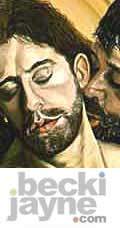
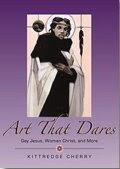
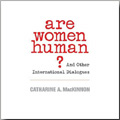
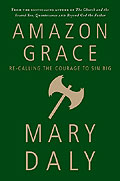
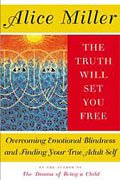


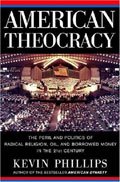





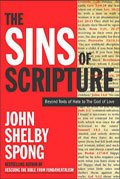

|